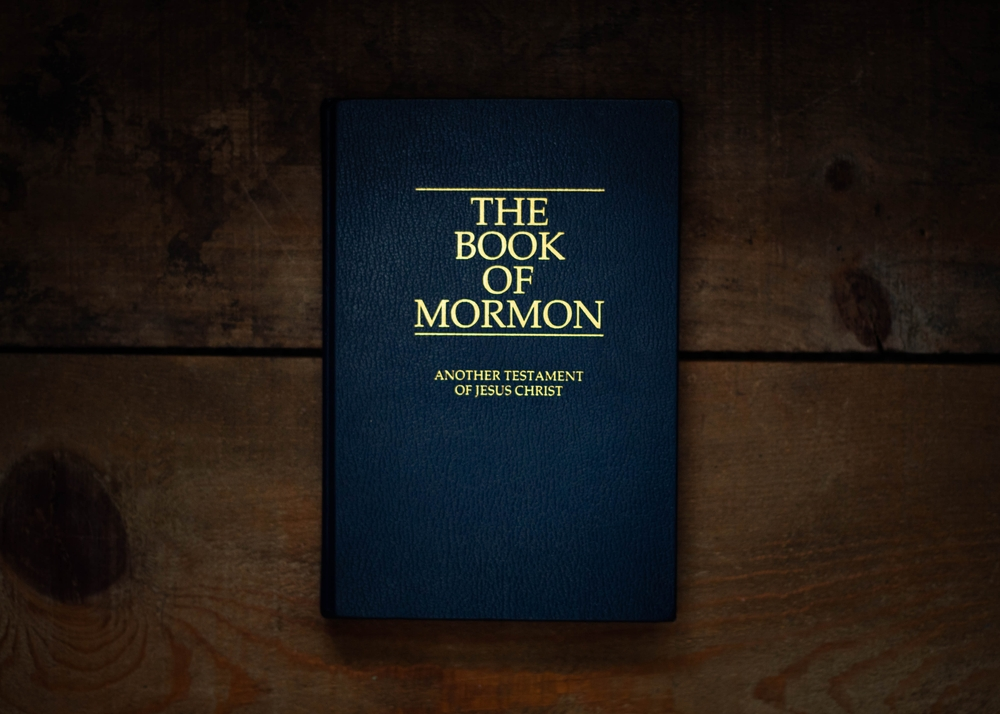Why Can’t Mormons Drink Coffee? Exploring the Mystery

In the diverse landscape of religious practices, the Mormon faith stands out for its unique set of beliefs and regulations. One intriguing aspect of Mormonism is the prohibition against consuming coffee. While many religions have dietary restrictions, the Mormon stance on coffee is remarkably distinct. This article delves into the historical, cultural, and religious reasons behind why can’t Mormons drink coffee.
The Word of Wisdom – A Guiding Principle
At the heart of the Mormon coffee abstention lies the “Word of Wisdom,” a set of dietary guidelines revealed to Joseph Smith. He founded the Church of Jesus Christ of Latter-day Saints in 1833. The Word of Wisdom advises against consuming substances deemed harmful to the body. It explicitly mentions coffee and tea. Mormons interpret this counsel as a divine directive to avoid these beverages.

Why can’t Mormons drink coffee finds its roots in a revelation known as the “Word of Wisdom”. It’s a guiding principle within the Church of Jesus Christ of Latter-day Saints. This revelation, received by Joseph Smith in 1833, encompasses a set of dietary guidelines. They consider this as a divine directive for healthy living.

Historical Context of why can’t Mormons drink coffee:
Delivery of the Word of Wisdom occurred when various substances, including tobacco and alcohol, were prevalent in American society. Joseph Smith, the founder of Mormonism, received this revelation as a response to the prevailing health concerns of the time. The guidance was intended not only to promote physical well-being but also to foster spiritual development.
Also Read:
Specific Prohibitions: why can’t Mormons drink coffee:
Within the Word of Wisdom, coffee and tea are explicitly mentioned as substances that Mormons are advised to abstain from. The language used in the revelation is direct: “Hot drinks are not for the body or belly.” The term “hot drinks” was not precisely defined. However, the Church leadership interpreted it to refer to coffee and tea.
For them, the specific prohibition against drinking coffee stems from the “Word of Wisdom.” It is a revelation received by Joseph Smith in 1833, now considered a foundational part of Mormon doctrine. The language within the Word of Wisdom explicitly advises against the consumption of “hot drinks.” The leadership of the Church of Jesus Christ of Latter-day Saints has interpreted it as referring to coffee and tea.

Avoiding coffee is not arbitrary but deeply rooted in interpreting this sacred text. The reasons behind this prohibition include both spiritual and health considerations. From a health perspective, the Word of Wisdom encourages practices that promote well-being. Church leaders have interpreted this to mean avoiding substances that could harm the body. Coffee, with its caffeine content, has been scrutinized in this regard.
On a spiritual level, Mormons view the Word of Wisdom as a divine directive. It means guiding towards a lifestyle that fosters physical and spiritual health. Abstaining from coffee becomes a way for them to demonstrate their obedience to God’s commandments. It aligns their lives with the teachings of their faith.
Moreover, the specificity of the prohibition highlights the importance of adhering to divine guidance. This is relevant even in seemingly mundane matters. It emphasizes the concept of self-discipline and personal sacrifice as integral components of a faithful life. By abstaining from coffee, Mormons believe they are making a tangible and symbolic commitment to their religious principles. It reinforces their identity as followers of the Word of Wisdom and members of the Church. In essence, the prohibition against coffee consumption is a visible marker of devotion. It also implies adherence to the unique tenets of the Mormon faith.
Why can’t Mormons drink coffee? Health Considerations:
The health aspects of the Word of Wisdom play a significant role in shaping Mormon dietary practices. These include the abstention from coffee. The revelation suggests that certain substances are not suitable for the human body. Scientific studies over time provide both positive and negative perspectives on coffee consumption. Mormons, guided by a desire for optimal health, choose to avoid coffee, erring on the side of caution.
Beyond the religious Context, health considerations play a role in the Mormon prohibition of coffee. The Word of Wisdom encourages a healthy lifestyle. Scientific studies have shown both positive and negative effects of coffee consumption. They, therefore, choose to err on the side of caution. They align their health choices with their religious beliefs.
Symbolic Significance: why can’t Mormons drink coffee:
For Mormons, abstaining from coffee goes beyond health-conscious decisions. It carries symbolic weight within the Context of their faith. The act of refraining from stimulants like caffeine becomes a tangible way to exercise self-discipline. It also cultivates spiritual mindfulness. It serves as a daily reminder of their commitment to live according to the teachings of their faith.

Abstention from coffee goes beyond health concerns. It holds symbolic significance. Avoiding stimulants like caffeine becomes a way to cultivate self-discipline and spiritual mindfulness. The act of forgoing coffee serves as a daily reminder of their commitment to live in line with the teachings of the Mormon faith.
Community Identity and Unity on why can’t Mormons drink coffee:
Avoiding coffee is an individual choice and a communal practice within the Mormon community. It fosters a sense of unity among believers. It creates a visible marker that sets them apart from mainstream societal norms. This intentional separation reinforces the unique identity of the Mormon way of life. It strengthens the bonds within the community.
The Mormon practice of abstaining from coffee goes beyond individual choices. It is intricately linked to the community identity and unity within the Church of Jesus Christ of Latter-day Saints. The avoidance of coffee is a shared experience that fosters a sense of unity among Mormons.
Within the Mormon community, adhering to the prohibition against coffee becomes a collective expression of faith. Intentionally abstaining from this widely consumed beverage creates a visible marker. It distinguishes them from mainstream societal norms. This deliberate separation reinforces the unique identity of the Mormon way of life. It contributes to a strong sense of community.

The act of avoiding coffee
The act of avoiding coffee becomes a communal ritual that binds believers together. This shared commitment creates a common thread running through the lives of Mormons. It reinforces the values and principles of their faith. It is not merely a personal choice but a collective practice that strengthens the bonds within the community.
In social gatherings, whether within the family unit or more significant church events, the absence of coffee becomes a unifying factor. Shared dietary practices, including abstaining from coffee, contribute to a sense of belonging and solidarity. This communal identity is further emphasized by the fact that Mormons are not alone in their adherence to the Word of Wisdom. The entire community engages in this practice, fostering a sense of togetherness.
The intentional separation from mainstream practices, such as the consumption of coffee, contributes to the cohesiveness of the Mormon community. It reinforces the idea that they are a distinct group with shared values and a shared commitment to their faith. In essence, abstaining from coffee becomes both a religious practice and a social and communal one. It strengthens the bonds of unity among Mormons.
Obedience to Divine Authority:
Central to Mormon theology is the concept of obedience to divine authority. The Word of Wisdom, including the prohibition against coffee, acts as a commandment from God. Mormons see adherence to these directives as an act of obedience. It demonstrates their commitment to follow divine guidance in even the seemingly mundane aspects of life.
Read:
In conclusion, the Mormon practice of abstaining from coffee originates in the Word of Wisdom. It is a revelation that combines health counsel with spiritual guidance. This practice is not merely a list of prohibitions. It is also a way for them to embody their commitment to a healthy and spiritually mindful lifestyle. The abstention from coffee becomes a tangible expression of their faith. It contributes to the unique identity and unity of the Mormon community.
Separation from the World:
Mormons aim to maintain a distinct identity, separating themselves from mainstream societal norms. The avoidance of coffee is a visible marker of their faith, creating a sense of unity among believers. This intentional separation fosters a strong sense of community and reinforces the uniqueness of the Mormon way of life.

The Mormon prohibition against drinking coffee is intricately tied to the concept of separation from the world. By abstaining from this widely consumed beverage, Mormons intentionally set themselves apart. This reinforces their unique identity and commitment to living by their faith. This intentional separation serves as a visible marker. It signals to the Mormon community and the broader society that adherents are distinct in their lifestyle choices. Refraining from coffee becomes a daily reminder of their commitment to a higher standard of living and spiritual principles. It fosters a sense of unity within the community while maintaining a clear distinction from mainstream cultural practices. This intentional separation from worldly norms is vital in the Mormon practice of abstaining from coffee.
Why can’t Mormons drink coffee? Rituals and Traditions
The Mormon community places great emphasis on rituals and traditions. The act of refraining from coffee becomes a shared experience. It weaves a common thread through the lives of believers. This shared commitment to abstention creates a sense of unity and reinforces the communal bonds within the Mormon Church.
The Mormon abstention from coffee extends beyond a simple dietary choice. It is woven into the fabric of the community’s rituals and traditions. Avoiding coffee becomes a shared experience. It is a ritualistic practice that unites them in their commitment to the teachings of the Word of Wisdom. This communal adherence to the prohibition fosters a sense of tradition passed down through generations. It creates a continuity that connects present-day Mormons with their historical roots. Refraining from coffee becomes not just a personal decision but a shared tradition. It reinforces the cultural identity of the Mormon community. These rituals and traditions surrounding coffee abstention serve as a unifying force. It strengthens the bonds among believers and emphasizes the significance of shared practices in the tapestry of Mormon life.
Continuation of Historical Practices
Mormons trace their roots to pioneers who settled in the American West in the 19th century. Abstaining from coffee has historical roots that connect present-day Mormons to their forebears. This continuity of tradition links to the past and reinforces a sense of identity and heritage among the Latter-day Saints.
The Mormon prohibition against drinking coffee is deeply rooted in continuing historical practices. Dating back to the 19th century, Mormon pioneers who settled in the American West adhered to the principles outlined in the Word of Wisdom. These include abstaining from coffee. This historical legacy serves as a connection between past and present. It anchors today’s Mormons to the traditions of their forebears. Refraining from coffee is a tangible link to the enduring practices of the early Mormon community. It creates a sense of continuity and heritage. By upholding this historical prohibition, they follow a religious directive and participate in a cultural tradition. It has been passed down through generations, reinforcing the enduring significance of their commitment to the Word of Wisdom.
The Mystery Concludes:
In the complex tapestry of Mormon beliefs, the prohibition against coffee is multifaceted. It intertwines religious, cultural, and historical threads. Whether viewed as a symbolic gesture, a health-conscious choice, or a testament to obedience, abstaining from coffee remains a defining characteristic of the Mormon way of life. Understanding the depth of these reasons provides valuable insights into the intricate nature of religious practices and their impact on the daily lives of believers.


